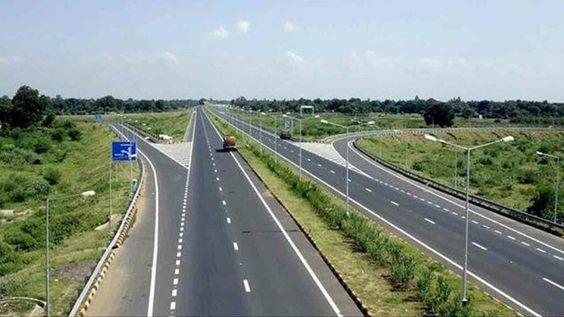


Table of Contents
- Introduction
- NHAI: Driving Infrastructure Development
- Challenges and Innovations
- Future Outlook and Sustainability
- Conclusion
- Faq's
Introduction
India's transportation infrastructure is a crucial element in the country's economic development and connectivity. Among the key players in this domain is the National Highways Authority of India (NHAI), tasked with the development and maintenance of national highways. The network of national highways, often referred to as NHs, plays a vital role in facilitating the movement of goods and people across the length and breadth of the country. Let's delve into the significance of NHAI and national highways in India's infrastructure landscape.
NHAI: Driving Infrastructure Development
The NHAI, established in 1988, operates under the Ministry of Road Transport and Highways (MoRTH). Its primary objective is to oversee the development, maintenance, and management of national highways and related infrastructure. Over the years, NHAI has played a pivotal role in enhancing India's road connectivity and promoting economic growth.
One of NHAI's notable initiatives is the implementation of FASTag, an electronic toll collection system. FASTag has streamlined toll collection processes, reduced traffic congestion at toll plazas, and enhanced the overall road travel experience. With the widespread adoption of FASTag, NHAI has embraced digital solutions to modernize India's transportation infrastructure.
National highways form the backbone of India's road network, spanning thousands of kilometers and connecting major cities, ports, and economic hubs. These highways play a crucial role in facilitating the movement of goods for trade and commerce, supporting industries, agriculture, and tourism sectors.
NHAI categorizes national highways based on their importance and traffic volume, with NH 1 being one of the oldest and busiest routes connecting Delhi to Amritsar. Other major national highways include NH 2 (Delhi to Kolkata), NH 7 (Varanasi to Kanyakumari), and NH 8 (Delhi to Mumbai).
 National Highway
National Highway
Image Source: Pinterest
Challenges and Innovations
Despite significant progress, India's road infrastructure faces challenges such as traffic congestion, maintenance issues, and the need for continuous expansion and modernization. NHAI has been proactive in addressing these challenges through innovative strategies.
One such innovation is the Bharatmala Pariyojana, a flagship initiative aimed at improving road connectivity and efficiency. Under this program, NHAI plans to develop over 34,800 kilometers of highways, including economic corridors, feeder routes, and border roads. These projects not only enhance connectivity but also create employment opportunities and boost regional development.
Future Outlook and Sustainability
Looking ahead, NHAI's focus extends beyond mere infrastructure development to sustainable and eco-friendly practices. The authority is promoting the use of green technologies, such as eco-friendly construction materials, energy-efficient lighting, and rainwater harvesting, in highway projects.
Moreover, NHAI is embracing digitalization and data-driven decision-making to improve operational efficiency, traffic management, and road safety. Initiatives like real-time traffic monitoring, intelligent transportation systems, and GPS-based vehicle tracking enhance overall road governance and user experience.
Conclusion
In conclusion, NHAI and national highways are integral components of India's transportation infrastructure, fostering economic growth, regional connectivity, and socio-economic development. Through strategic initiatives like FASTag implementation, Bharatmala Pariyojana, and sustainable practices, NHAI is driving the transformation of India's roadways into modern, efficient, and environmentally conscious corridors. With continued investment, innovation, and collaboration, India's road network is poised to meet the evolving needs of a dynamic and growing economy.
explore further
Latest from Editorials
More from Publications
Resources
Dwello, for every home buyer, is a way to go from 'I feel' to 'I know', at no extra cost.


